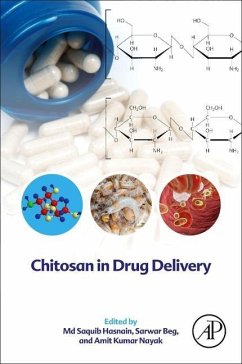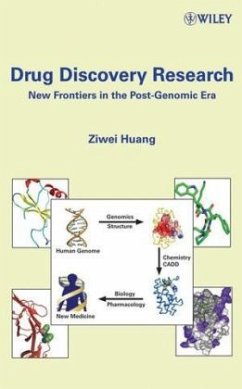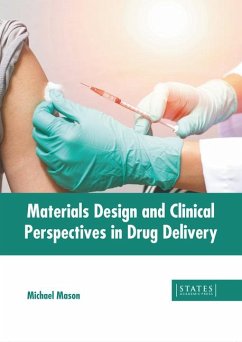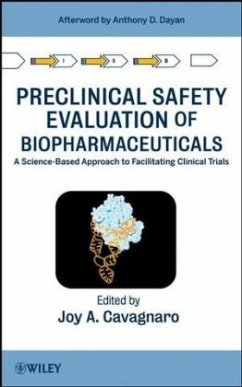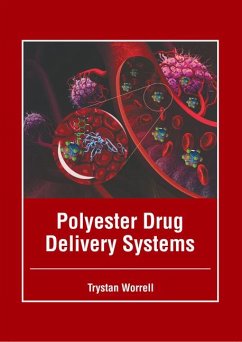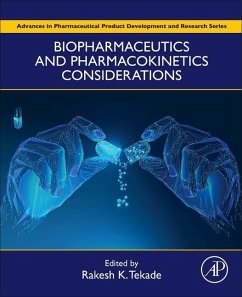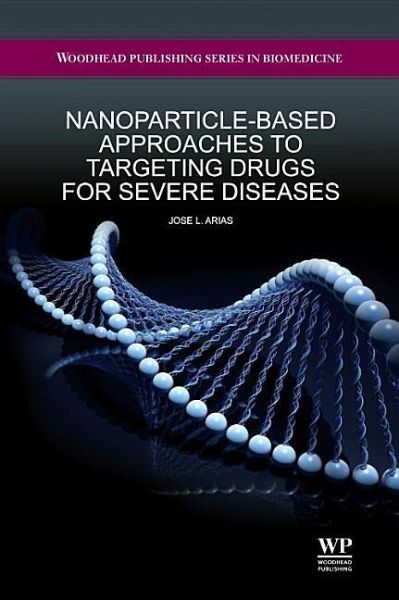
Nanoparticle-Based Approaches to Targeting Drugs for Severe Diseases
Versandkostenfrei!
Versandfertig in über 4 Wochen
192,99 €
inkl. MwSt.

PAYBACK Punkte
96 °P sammeln!
Nanoparticle-based approaches to targeting drugs for severe diseases is devoted to the analysis of the latest developments in the use of passive and/or active targeting nano-strategies for controlling the biodistribution profiles of pharmacotherapy agents. Special attention is given to recent advances in these engineering approaches: specifically, to target nanomedicines against severe diseases, and to the development of multifunctional nanoplatforms for combined selective diagnosis and effective pharmacotherapy.Current pharmacotherapy against severe diseases frequently fails due to the little...
Nanoparticle-based approaches to targeting drugs for severe diseases is devoted to the analysis of the latest developments in the use of passive and/or active targeting nano-strategies for controlling the biodistribution profiles of pharmacotherapy agents. Special attention is given to recent advances in these engineering approaches: specifically, to target nanomedicines against severe diseases, and to the development of multifunctional nanoplatforms for combined selective diagnosis and effective pharmacotherapy.
Current pharmacotherapy against severe diseases frequently fails due to the little or negligible specificity of drug molecules for non-healthy cells. Even more advanced pharmacotherapy agents can exhibit a very low accumulation into the disease site, and an extensive biodistribution into healthy tissues. As a consequence, long-term pharmacotherapy is characterized by significant inefficacy and severe toxicity.
In order to meet the challenge, the introduction of nanotechnology into pharmacology is under intense investigation. Nano-pharmacology, which primarily involves the formulation of nanoparticulate carriers for drug molecules, is considered a revolutionary concept in the disease arena. The use of biodegradable nanoplatforms loaded with pharmacotherapy agents can result in improved drug localization into the disease site with negligible distribution into non-targeted sites. As a result, the therapeutic activity of such molecules will be significantly enhanced, and the systemic side effects will be minimized as well. However, recent in vivo investigations have shown the limitations of the use of conventional nanocarriers. Interestingly, novel nano-engineering strategies have been introduced in the formulation of nanoparticulate platforms for the delivery of drugs to non-healthy tissues. Such approaches are even capable of overcoming multi-drug resistances expressed by non-healthy cells.
This book provides an in-depth and detailed analysis of the above problems, and a comprehensive discussion of the available solutions. It focuses on aspects of the formulation of drug nanocarriers, alongside characterization techniques, toxicity issues, regulatory aspects, and marketing.
Discusses the importance of the introduction of nanotechnology to pharmacotherapy, providing a systematic overview of key aspects to be considered in the formulation of nanoparticulate systems for drug delivery to severe diseases. It also analyses drawbacks arising from the use of conventional drug nanocarriers
Recent engineering approaches in nanoparticle synthesis have facilitated increasingly efficient delivery of the drug dose to the site of action. Here, special insight will be gained on the introduction of passive and active targeting concepts in the engineering of such nanoplatforms to gain control of their biological fate
Significant procedures to synthesize advanced nanomedicines are analyzed. Proper formulation strategies, in case studies from recent literature, are exhaustively described
Current pharmacotherapy against severe diseases frequently fails due to the little or negligible specificity of drug molecules for non-healthy cells. Even more advanced pharmacotherapy agents can exhibit a very low accumulation into the disease site, and an extensive biodistribution into healthy tissues. As a consequence, long-term pharmacotherapy is characterized by significant inefficacy and severe toxicity.
In order to meet the challenge, the introduction of nanotechnology into pharmacology is under intense investigation. Nano-pharmacology, which primarily involves the formulation of nanoparticulate carriers for drug molecules, is considered a revolutionary concept in the disease arena. The use of biodegradable nanoplatforms loaded with pharmacotherapy agents can result in improved drug localization into the disease site with negligible distribution into non-targeted sites. As a result, the therapeutic activity of such molecules will be significantly enhanced, and the systemic side effects will be minimized as well. However, recent in vivo investigations have shown the limitations of the use of conventional nanocarriers. Interestingly, novel nano-engineering strategies have been introduced in the formulation of nanoparticulate platforms for the delivery of drugs to non-healthy tissues. Such approaches are even capable of overcoming multi-drug resistances expressed by non-healthy cells.
This book provides an in-depth and detailed analysis of the above problems, and a comprehensive discussion of the available solutions. It focuses on aspects of the formulation of drug nanocarriers, alongside characterization techniques, toxicity issues, regulatory aspects, and marketing.
Discusses the importance of the introduction of nanotechnology to pharmacotherapy, providing a systematic overview of key aspects to be considered in the formulation of nanoparticulate systems for drug delivery to severe diseases. It also analyses drawbacks arising from the use of conventional drug nanocarriers
Recent engineering approaches in nanoparticle synthesis have facilitated increasingly efficient delivery of the drug dose to the site of action. Here, special insight will be gained on the introduction of passive and active targeting concepts in the engineering of such nanoplatforms to gain control of their biological fate
Significant procedures to synthesize advanced nanomedicines are analyzed. Proper formulation strategies, in case studies from recent literature, are exhaustively described



